Photographs: Reuters Satyavrat Mishra
After sweeping the Bihar elections, Chief Minister Nitish Kumar tells Business Standard that the main task before him is to tackle corruption and ensure fast economic growth. Excerpts from an interview:
During the election campaign, you promised to keep tabs on corruption. How are you going to do this?
Well, our target is to eliminate corruption from the state. For this, we have been doing a lot of work. During our previous stint, we passed an anti-corruption Act.
Under the Act, properties of corrupt officials can be seized by the state government and turned into schools. This time also, we are actively involved in making special laws and putting in place special provisions to control corruption.
. . .
How Nitish plans to make Bihar an economic power
Photographs: Reuters
We are in the process of drafting a Right to Service Bill. To curb corruption in local bodies, a Lokpal will be appointed. The important thing is that today there is a structure and willingness within the state government to curb corruption. Other things will fall in line.
What is this right to service?
It is going to be the biggest administrative reform in Bihar. During my Vishwas Yatras, I saw that people had to make numerous rounds of government offices for the simplest of jobs.
That is why we took this innovative step. According to the provisions of this Bill, simple works like issuing caste certificates, character certificates, medical certificates, birth or death certificates and passports will have to done in set time.
If the work is not done within the deadline, the official concerned will be fined. One of the most important provisions is that the fine will be deducted from the official's salary. These are small steps but will create a huge impact.
We are also planning to take the help of information technology later. We feel that people should not have to visit government offices for these simple things.
. . .
How Nitish plans to make Bihar an economic power
Photographs: Reuters
The government is establishing common service centres, known as Vasudha Kendras, in every panchayat. These will be equipped with computers and internet connections. People will be able to drop their applications at these centres.
They will be able to view the status of their applications on the internet. This can be implemented at a later stage. But right now, we want to ensure that the common man gets the services of civil servants.
Our main aim is to ensure that the common man has minimum possible interaction with government officials for getting his work done.
What is the status of the Bill?
The initial draft is ready. I am actively involved with preparing it. This week also, I had a meeting with senior officials on this. You can expect it in the next session of the Assembly.
It will apply to all public servants. We are very clear about it. Both the Centre and the state government are spending money for development and this must reflect on the ground.
. . .
How Nitish plans to make Bihar an economic power
Photographs: Reuters
There are many complaints about the National Rural Employment Guarantee Scheme (NREGS) in the state. What do you have to say about that?
There are indeed many constraints here. The biggest problem is the limited flow of money from New Delhi. We came to power in November 2005 and found that the previous government had not provided utilisation certificates for many projects.
The Centre is demanding these for sending the money. How can one justify that? However, we are providing them the certificates, but still the central government is not giving us the money.
On the other hand, there's a shortage of technical staff and rozgaar sewaks. One important thing is the number of days of employment.
NERGS does promise 100 days employment a year, but the money allocated to us can provide employment for just 30-35 days.
. . .
How Nitish plans to make Bihar an economic power
Photographs: Reuters
Besides, there is a lack of awareness about the provisions of NREGS. Just having a job card does not provide you a job. One has to apply.
I personally chaired a meeting on this during the last days of my previous tenure. It was a very long and detailed meeting, in which noted social economist Jean Dreze participated.
That meeting was attended by the chief secretary, the principal secretary of the rural development department and many other senior officials of the state government.
We took many notable decisions to curb leakages in the system. But inadequacy of funds remains a big problem. The central government must provide us the money.
However, we have taken many innovative steps for NREGS. Now, local officials can approve larger projects.
. . .
How Nitish plans to make Bihar an economic power
Image: Nitish Kumar.We will recruit technical staff and rozgaar sewaks. We are also trying to increase the involvement of locals in the projects. To put a stop on corrupt practices, we have launched 'E-Shakti' biometric cards.
A pilot project for this is going on in Patna district. It will be extended to the whole state. Keep an eye on this project as one day it will be a model for whole country.
What about the public distribution system (PDS)? What are you plans for that?
The work we have done for PDS has never been done by any government. We revamped the whole process. All dealers were against me at one point of time. It shows the improvement that we have done.
However, there is still more to do and we will be doing it.
. . .
How Nitish plans to make Bihar an economic power
Photographs: Reuters
What did you tell your council of ministers? They look quite enthusiastic.
Nothing much. I just asked them to first understand their departments and be available to the people. No one should be turned away from the minister's office or residence.
Ministers should attend to the needs of the visitors and be humble to them. Besides, I asked them to give a patient ear to the elected representatives.
Their suggestions on matters of public interest should be accepted and if any recommendation is not considerable, they should be told the reasons politely.
Will you be visiting New Delhi and asking for help from the central government?
Certainly. I have plans to go to New Delhi after the session (of Assembly) and meet the prime minister. I will ask for his assistance in developing Bihar.

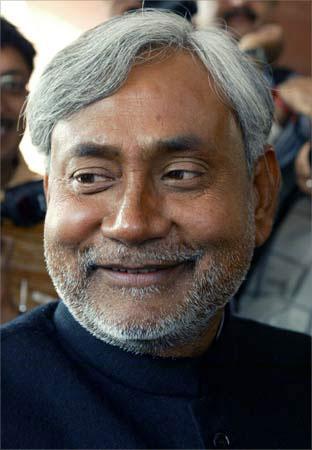
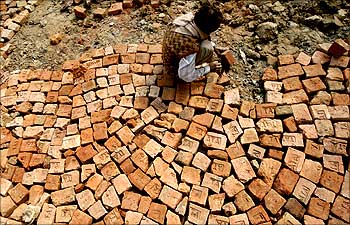
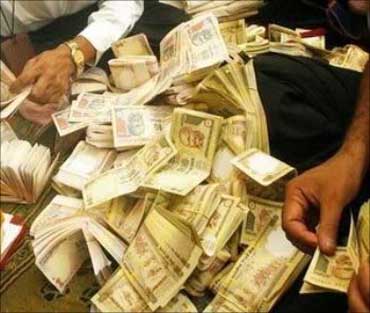

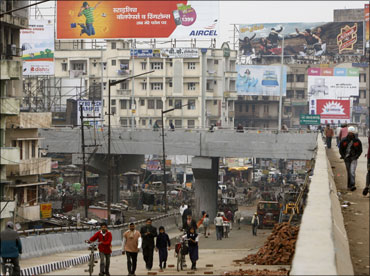
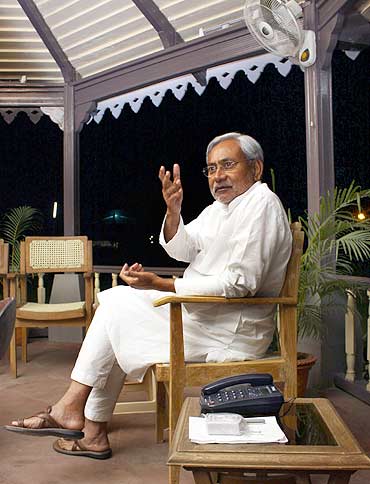


article